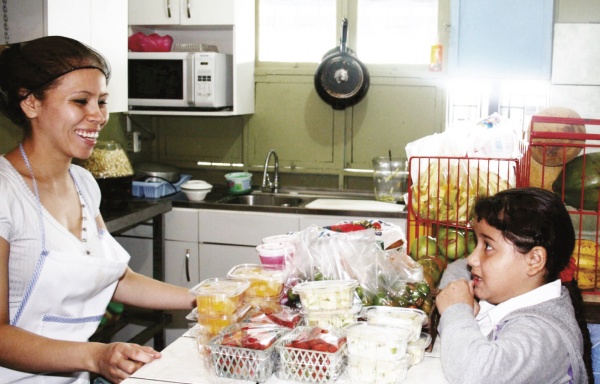Regulating food sales at school
In 2012, Costa Rica issued Executive Order 36910 regulating the sale of sodas in schools, in order to reduce the incidence of overweight and obesity in children and young people. Statistics (January 2012) showed that 21.4% of children ages 5 to 12 years and 20.8% of adolescents ages 13 to 19 years were overweight or obese in Costa Rica. Under Executive Order 36910, schools may only sell fresh produce and packaged foods and beverages that meet specific nutritional criteria, such as products that are low in calories and saturated fat. The goal is to reduce cardiovascular disease, diabetes, calcium deficiencies, and tooth decay. The Ministries of Health and Education prepared briefings and other communications materials for students and teachers. The Costa Rican Chamber of the Food Industry (CACIA) challenged the constitutionality of the Executive Order, claiming it interfered with freedom of commerce, among other rights. The Constitutional Court rejected the challenge, allowing Executive Order 36910 to enter into force.
Meets the criteria established under Health in All Policies:
- Political commitment. Signed by both the Ministers of Education and Health, Executive Order 36910 enjoys political commitment at the highest levels.
- Separate structure. The Executive Order does not create a separate structure. The Ministries of Health and Education are responsible for monitoring implementation and compliance is mandatory for all companies that provide school meals.
- Participation of other sectors. The health and education sectors coordinate implementation of the Executive Order. An Advisory Board created by Office of the Dean of Medicine of the University of Costa Rica—which includes the Schools of Medicine, Nutrition, Nursing, and Public Health—will design research projects to study the results and impact of the Executive Order. The Office of the Attorney General defended the Executive Order against an unconstitutionality suit brought by the private sector.
- Separate budget. The Executive Order does not require a separate budget. Regulated products are available for sale to schoolchildren. The Ministry of Health funds school lunches for underprivileged children through its Education and Nutrition Centers (CEN-CINAI). The Executive Order does not require the creation of a separate office or department.
- Focus on reducing inequity. The Executive Order does not directly seek to reduce inequities insofar as it applies equally to the student population in all public and private schools.
- Intersectoral action. Implementation of the Executive Order requires the coordinated efforts of the health and education sectors.
- Public policy. The decree stipulates that only fresh foods and processed foods that meet specific nutritional requirements can be sold in schools.
- Evidence of results. While no specific evaluation mechanisms were developed under the Executive Order, national nutrition surveys will be used to evaluate its impact. The Ministry of Health and the National Institute for Health Sciences Research (INCIENCIA) conduct periodic surveys, the Ministry of Health conducts surveys every ten years, and INCIENCIA conducts annual surveys. The next round of surveys should reflect the impact of the Executive Order.
- Social participation. While the Executive Order entails no active social participation, the Ministries of Health and Education lunched joint media campaigns to raise public awareness and encourage public support for the Executive Order.
